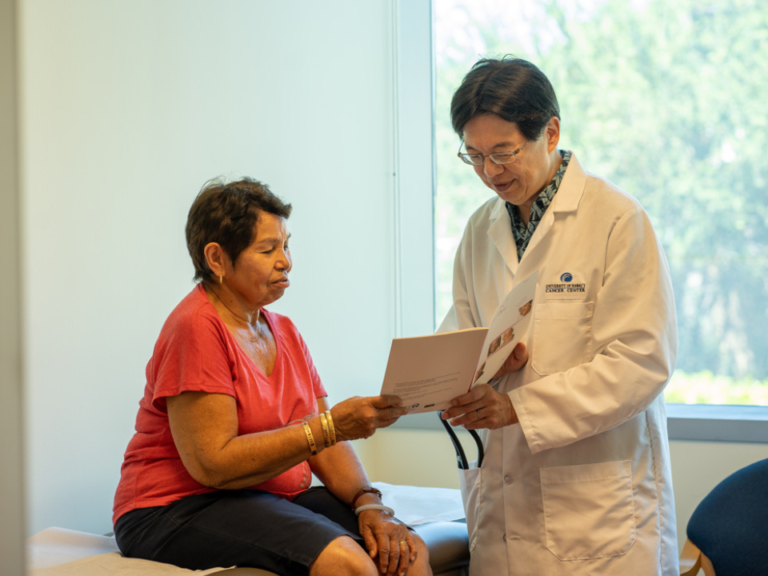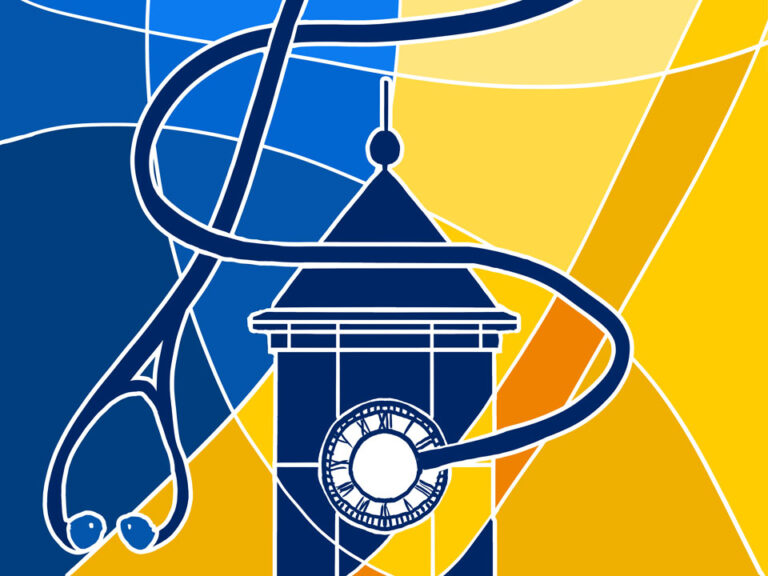If lifetime impact could be quantified by pages in The Cancer Letter, no person has been more revered than Waun Ki Hong: following Hong’s death in 2019, The Cancer Letter published no fewer than six obituaries. Now, you can hear his story in his own words.
“Waun Ki Hong’s contributions to medicine changed the field as we know it,” wrote Fadlo R. Khuri, president of the American University of Beirut.
Hong died Jan. 2, 2019. On Jan. 4, The Cancer Letter published three obituaries, but they kept coming. Over the next few weeks, three more would grace our pages. Each one matched Khuri’s tone of reverence: Hong is extolled as an eminent role model, pioneer of precision medicine, father of chemoprevention, and legend.
Today, the Cancer History Project and The University of Texas MD Anderson Cancer Center honor Hong’s legacy once more.
I’ve been very lucky. I always say that. I’ve been recognized as more than I deserve during my career.
Waun Ki Hong
In 2013, Hong was interviewed as part of MD Anderson’s Making Cancer History Voices® Oral History Project. This interview and transcript are now available through the Cancer History Project.
Born Aug. 13, 1942, in the Republic of Korea, Hong experienced three wars firsthand. He was eight years old when the Korean War began, he said. “We were with the refugees. And you see what the people—how much they struggled. And they destroyed everything—losing people. It’s just an absolutely devastating experience.”
Hong earned his MD as another war broke out.
“In 1967, I graduated medical school, and then I had to serve a three-year term in Korea for military service. So, I was deployed into Vietnam, and so I was a flight surgeon. With the job as flight surgeon I was responsible for transporting wounded soldiers from Vietnam to the Philippines, to Korea by airplane.”
“I think the spirit of service—the spirit of collaboration came,” Hong said, reflecting on how war affected him. “I think that has inspired me to think about human nature and human beings and humanity. And then I would say—again, that was later on, but I think maybe that inspired me to do some more research—patient care research.”
Read more on the Cancer History Project:


Waun Ki Hong, M.D. Oral History Interview, 2013
By MD Anderson Cancer Center, May 23, 2024
Major Topics Covered:
- Personal and educational background; military experience
- Research: organ preservation (especially of the larynx), studies of leukoplakias, Vitamin A, chemoprevention, and personalized, targeted therapy; multi-disciplinary approaches to diseases of the aero-digestive system
- Approaches to research design, team science, translational research
- The Department of Thoracic and Head and Neck Medical Oncology: organization, fellowship program, creating an environment for excellence
- The Division of Cancer Medicine
- MD Anderson growth; the presidents
- Leadership; leading teams, fostering collaboration
Related articles


Waun Ki Hong, Mentor Magnificus
By Fadlo R. Khuri, Jan. 4, 2019
Yesterday, I received a succession of phone calls through the afternoon and evening—from Roy Herbst, chief of medical oncology at the Yale Cancer Center, Marge Foti, president of the American Association for Cancer Research, Patrick Hwu, head of the Division of Cancer Medicine at the MD Anderson Cancer Center (MDACC), and Otis Brawley, professor of oncology at Johns Hopkins University.
They all wanted to know if I had heard the terrible and unexpected news that Waun Ki Hong had passed away—and to check that I was OK. In circumstances like this, OK is a relative term, but my first thoughts are with the man himself and his family. And what a man he was.


Waun Ki Hong, eminent role model, was always years ahead of the field
By Patrick Hwu, Jan. 4, 2019
This week, we lost a cancer research pioneer, and friend and mentor to many in the field, with the sudden death of Waun Ki Hong, M.D., a world-renowned clinical researcher who leaves behind a remarkable legacy.
He was a trail-blazing scientist whose innovations led to successful organ-sparing cancer treatment. Best known as the father of chemoprevention, his groundbreaking clinical trial at MD Anderson to treat precancerous lesions for oral cancers established proof of principle for preventing cancer by treating its precursor growths. This rapidly rippled to improve treatment for other disease sites, such as the use of tamoxifen and raloxifene to prevent breast cancer.
Breakthroughs such as these earned him many of the oncology field’s most prestigious accolades during his career at MD Anderson, starting in 1984 as Head and Neck Medical Oncology section chief and then leading the Cancer Medicine Division from 2001 to 2014, in addition to serving as the institution’s vice provost for clinical research from 2012 to 2013.
Dr. Hong was truly loved and revered worldwide. He was so deeply respected that few of us could actually address him as “Ki” as he requested. Every time I tried, “Dr. Hong” would come out of my mouth instead. All of those around him knew that, in his heart, he always wanted the best for us.


A general in BATTLE, Waun Ki Hong was a pioneer of precision medicine
By Roy S. Herbst, Jan. 4, 2019
I was heartbroken to learn of the passing of my mentor, colleague, and friend, Waun Ki Hong. Dr. Hong was the quintessential physician scientist who specialized in all aspects of medicine, but most notably patient care, research, and education. This is a devastating loss for the entire oncology community, and especially for all of the patients he cared for and helped.
Though he has departed, his findings will continue to help those patients for years to come, including his groundbreaking innovations in the treatment of locally advanced head and neck cancer, precision medicine, chemoprevention, and targeted therapy. Just think about how lung cancer treatment has changed in 20 years with the advent of targeted therapy, precision guided biopsies, and immunotherapy, thanks to his leadership.


The Waun Ki Hong we knew and admired
By Irwin H. Krakoff, Jan. 11, 2019
I have had the privilege of accepting young men and women into medical oncology fellowship programs at Memorial Sloan Kettering Cancer Center, the University of Vermont Cancer Center and MD Anderson Cancer Center and I have watched many of them shine as they took on both academic and community oncology positions throughout the United States and the world.
Waun Ki Hong was special.
To ask the correct questions, obviously, you have to have some innovations. And also you have to be stubborn. And also you have to have the capability to capture the funds, and you have to mobilize the people and teams. So I don’t know how I did it. I guess I’m a stubborn guy and people trust me.
Waun Ki Hong
Waun Ki Hong–A Career of Vision
By James L. Abbruzzese, Jan. 18, 2019
On Jan. 2, my friend and long-time mentor Waun Ki Hong passed away. In thinking about what Ki did for me personally and the impact he had on the lives and professional careers of so many people, I pulled out a speech I gave at his retirement celebration at MD Anderson on Aug. 15, 2014. I was struck that even in his passing so many of my thoughts ring true today. Perhaps this will give readers of The Cancer Letter a sense of the man.
I first came to know Dr. Hong in 1983 after he recruited me to the Boston University School of Medicine/Boston VA upon completion of my medical oncology fellowship at the Dana-Farber Cancer Institute.
Shortly thereafter, Dr. Hong moved to the MD Anderson Cancer Center, where, as you know, he has had an amazing tenure, stimulating the career trajectories of numerous physicians and scientists and disseminating his passion and enthusiasm for cancer science throughout the institution, thereby changing it forever.


Two singular men shared an uncommon greatness: Waun Ki Hong and John Mendelsohn
By Scott M. Lippman, Daniel D. Karp, and James L. Abbruzzese; Feb. 8, 2019
Waun Ki Hong and John Mendelsohn were singular forces who combined to change the world of oncology and, in the process, the lives of countless trainees, faculty, patients, and families.
After these giants of cancer research and treatment died last month—they died five days apart—much was said about their careers and awards, of which there were many. All of this was important, but it’s done, and now we can look at some of the timeless and instinctive leadership ingredients that shaped Ki’s and John’s success.
Through the course of many interactions, their approach to life synergized with each other, and they genuinely became the legends that they created. The relationship was not superficial. They were equals, and they took the time to learn from each other. They worked and played (tennis) together, they discussed programs and science, and in the end, they took care of each other. Whether they explicitly discussed leadership principles we may never know, but the closeness of the relationship suggests that they communicated deeply about how to work effectively in the context of complex academic and scientific systems to accomplish their personal goals while promoting institutional objectives and the work and careers of others.
Those of us lucky enough to have been mentees and colleagues of Ki and John experienced the unique dynamism and influence of each. What they did, and their impact, is a matter of public record; how they did it is another matter altogether.
This column features the latest posts to the Cancer History Project by our growing list of contributors.
The Cancer History Project is a free, web-based, collaborative resource intended to mark the 50th anniversary of the National Cancer Act and designed to continue in perpetuity. The objective is to assemble a robust collection of historical documents and make them freely available.
Access to the Cancer History Project is open to the public at CancerHistoryProject.com. You can also follow us on Twitter at @CancerHistProj, or follow our podcast.
Is your institution a contributor to the Cancer History Project? Eligible institutions include cancer centers, advocacy groups, professional societies, pharmaceutical companies, and key organizations in oncology.
To apply to become a contributor, please contact admin@cancerhistoryproject.com.











